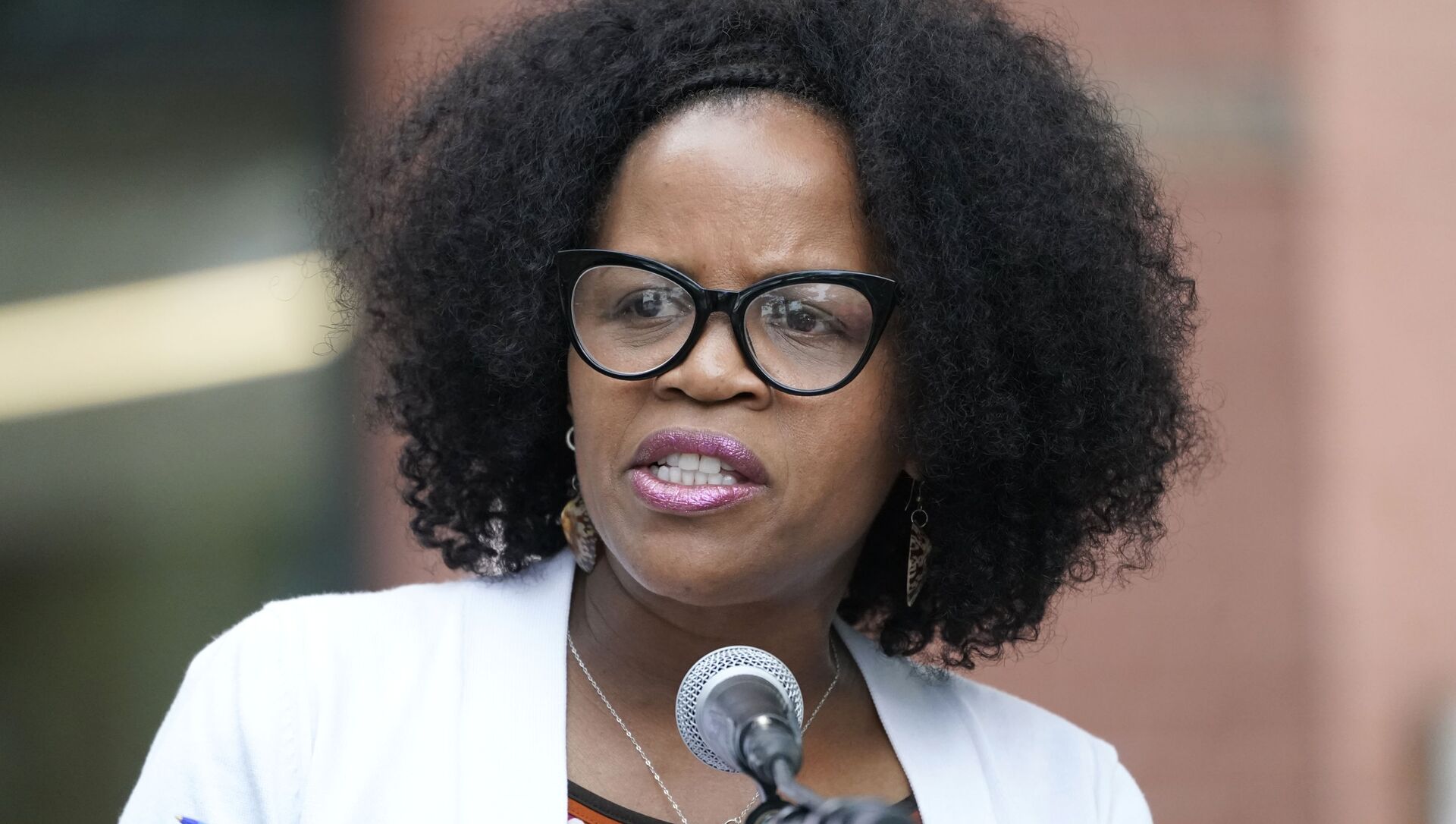Boston Mayor Compares Vaccine Proof Mandate to Freedom Papers Required of Blacks During Slavery

© AP Photo / Elise Amendola
Subscribe
Boston’s mayor has shut down suggestions the city would follow New York’s example, saying requiring proof of COVID-19 vaccination for people to participate in public indoor activities followed a long history of minorities “needing to show their papers.”
“There’s a long history in this country of people needing to show their papers,” acting Boston Mayor Kim Janey said on Wednesday, “during slavery, post-slavery, as recent as, you know, what the immigrant population has to go through.”
“We’ve heard Trump with the birth certificate nonsense. Here, we want to make sure that we are not doing anything that would further create a barrier for residents of Boston or disproportionately impact BIPOC [Black, indigenous, and other people of color] communities,” she added, according to the Boston Herald.
Janey’s comment is an oblique reference to the “freedom papers” Free Black Americans were forced to carry with them at all times during the era of slavery before its abolition in 1865, which proved they weren’t runaway slaves and which they were required to produce on demand. Without them, Free Blacks risked being arrested and enslaved. Janey is Boston’s first Black and first female mayor, having taken office in March after then-Mayor Marty Walsh was appointed to head the US Department of Labor.
Her remarks come after New York City Mayor Bill de Blasio said on Tuesday that the nation’s largest city would require proof they had received at least one dose of a COVID-19 vaccine from people before they could participate in indoor dining, fitness and entertainment venues in the city. He called it the "Key to NYC Pass.”
"’The key to New York City.’ When you hear those words, I want you to imagine the notion that because someone is vaccinated, they can do all the amazing things that are available in New York City," de Blasio said at a press conference. "This is a miraculous place, literally full of wonders, and if you're vaccinated, all that's gonna open up to you. You'll have the key, you can open the door."
"But if you're unvaccinated, unfortunately, you will not be able to participate in many things," he added.
The week prior, de Blasio also announced that all 340,000 municipal workers would be required to either get vaccinated against COVID-19 or submit to weekly COVID-19 testing.
De Blasio’s initiative comes amid a flagging vaccination drive in the US, where nationwide daily shots have declined from a high of 4.4 million per day in mid-April to just 682,000 on July 30, according to the US Centers for Disease Control and Prevention (CDC) data. On Tuesday, the US hit US President Joe Biden’s goal of 70% vaccination for the adult population, albeit a month after Biden aimed for it, and just under 50% of the US population has been vaccinated overall.
In some parts of the country, vaccine hesitancy is widespread, with 28 of 50 states having less than 50% of their population vaccinated. The lowest states, including Alabama, Mississippi, and Arkansas, have just 35% of their population vaccinated and rates have stagnated.
According to the latest data for Boston, which dates to July 27, 60.6% of the city’s 692,000 people have been fully vaccinated.
While the Biden administration has blamed “misinformation” for the stalled vaccination campaign and urged social media platforms to more tightly regulate vaccine-related content, more quietly, the federal government has also provided some $100 million to rural health clinics for outreach services to “improve health literacy” and address community members’ concerns about the vaccines.
A Gallup poll conducted in June found that 20% of vaccine-hesitant respondents were open to persuasion, while 51% said they were not at all likely to reconsider their position in light of new information. An earlier poll conducted in March by the analytics company found that 23% of hesitant people wanted to wait until the vaccine was confirmed to be safe, and another 16% said they were specifically concerned about how quickly the vaccines had been developed and another 10% were either allergic or afraid of an allergic reaction to the vaccine.
At the other end, Gallup also found that people not getting vaccinated was Americans’ greatest fear about the pandemic, with 53% of respondents saying so.
Following Janey’s comments on Wednesday, some Bostonians raised their voices in criticism. City Councilor Andrea Campbell, who is running against the acting mayor in the November election, said, “When we are combating a deadly virus & vaccine hesitancy, this kind of rhetoric is dangerous.”
“Showing proof of vaccination is not slavery or birtherism,” Campbell tweeted. “We are too close to give ground to COVID. Science is science. It's pretty simple - vax up and mask up.”
Michelle Wu, another of Janey’s election rivals, even more explicitly came out in favor of a solution like de Blasio’s, saying that “anyone in a position of leadership should be using that position to build trust in vaccines.”
Our leaders need to build trust in vaccines. pic.twitter.com/0nPyQtprh6
— Michelle Wu 吳弭 (@wutrain) August 3, 2021
Janey isn’t the only politician to be criticized for how she objected to vaccination cards or other government COVID-19 safety measures, either: US Rep. Marjorie Taylor Greene (R-GA) has repeatedly been raked over the coals for her numerous comparisons to the Holocaust. She apologized for doing so in June and visited the Holocaust Memorial Museum in recompense, but just weeks later resumed her old habit.



